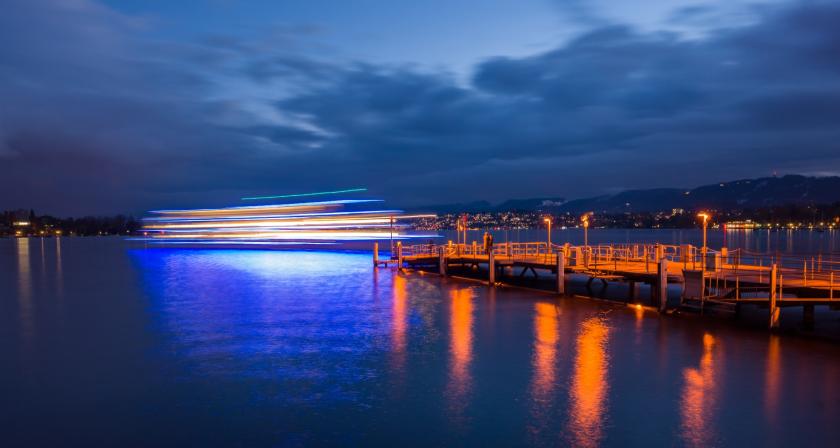%20(002).jpg?v=1)
Speakers
At centre stage: Episode #3
Episode 3 in the “At centre stage” series is dedicated to start-ups. True, it’s not an industry or sector. But nonetheless, the majority of market leaders, especially in fast-paced industries such as technology and life sciences, began as start-ups. There are particularities in the way they operate, but for success on the market it is necessary to understand a few dos and don’ts.
Monika Kek PhD, the CEO (and also the founder) of BluHeera AG, a Switzerland based boutique consulting company which provides professional services to the smaller but high-risk enterprises, such as start-ups, and Saša Sodja, a highly experienced attorney-at-law at CMS Slovenia with a tax background, savvy in advising start-ups as well corporates with corporate, commercial and tax legal challenges, dissect the mistakes start-ups make that hinder their development.
Below you can watch the video of the episode, listen to the podcast or read the transcript of the lively debate on the topics currently rousing the country’s business, legal and political community.
At centre stage - Episode #3: Why do start-ups fail?
- Importance of legal and business structure;
- Are investors the angels?;
- Transparency and compliance;
- Protection of know-how and IP.
Sašo Papp: Welcome back to the third episode of At Center Stage, a video series dedicated to booming sectors and industries. Do you want to get firsthand information on the developments in a certain sector or industry and understand the behaviour of certain market players? Then we welcome you to join us. If this is the first time that you are with us, my name is Saso Papp, a longtime radio guy in love with technology, gadgets and startups, and I'm your host. Today's episode will focus on startups. What are the most common mistakes startups make that impede their development in the long run? And of course, how can you prevent that from happening? I’m joined by Monika Kek and Sasa Sodja, two exceptional women deeply involved in the startup community. Monika Kek PhD, is the CEO and founder of BlueHeera AG, a Switzerland-based boutique consulting company, active in six countries. Whose mission is to provide professional services to smaller but high risk enterprises, such as startups.
She held various high level corporate positions in M&A and corporate finance, such as in the public sector in Hungary and in the European Union. She has over 25 years of working experience and a strong financial and corporate finance background in an international environment, besides the several different former board memberships she held in parallel. And Sasa Sodja, an attorney at law at CMS Slovenia, who has been helping both international and domestic companies with corporate, commercial and tax-based legal challenges. She has a tax financial background, gained working for one of the big four companies over many years, which is a plus when it comes to understanding corporate governance mechanisms, restructurings and business compliance in order to provide clients with comprehensive support. And you will see what I mean when I say that her enthusiasm and desire to make a meaningful change are contagious. Monika and Sasa, a warm welcome.
Saša Sodja: Thank you Saso.
Monika Kek: Thank you.
Sašo Papp: At the launch of a startup, everything is kind of peachy. There is an amazing idea, founding members’ enthusiasm is high, the goal of hitting the IPO on the London Stock Exchange looks to be just a few steps away and nothing seems impossible. Being driven by this positive drive and energy, which is an essential factor for startup success, can easily blind founders to potential issues that can result in legal or business risks for the company on the long run. Many startups are formed by friends or family members, so this makes the whole process very personal. In addition, founders pour a lot of their own resources into the project.
So my first question today is how important is it to have a sound legal structure from the initial formation of the business? Because you know how it goes most of the time: we have an idea, we test it out and we fail, well most of the time—nine out of 10 startups fail as they say. But if you are one of those rare startups that does well, and you were not thinking about legal structure before then, well, blood, sweat and tears, right Sasa? What are your thoughts about this at the beginning of our chat today?
Saša Sodja: Yes. Most of the times lawyers are of course seen as people that come into the company and draft these extensive documents that make things more formal or rigid, especially with startups. Because like you said, most founders are friends or they know each other from before, and they're kind of very informal. But when you say legal structure, I understand corporate governance as well and contracts are also part of legal structure. And these documents actually make things easier for the startups and the founders because they provide rules for the relationships between them. So not just like division of responsibilities and obligations in everyday operations, but also provide for situations where, for example, one of the founders leaves and it's something that they didn't foresee beforehand. And these documents are kind of ... like when you play a board game, there are rules that prevent arguments in the future.
So I think this is like the ground rules and I don't know how to explain it better. But when we were in university, we played a lot of Tarot, it's a card game that is played in Slovenia a lot. And people coming from different parts of Slovenia, we all played a bit differently. So every time we got together, we agreed on the constitution of the game and this avoided us arguing later on, and it worked. It's similar with corporate governance at startups, well, not just with startups, any company basically. Because once you have rules, you know what happens when you're no longer friends or family or whatever.
Contracts are rules that prevent arguments in the future.
Sašo Papp: But Sasa, many people will argue or will say at the beginning, "Well, we don't know how the thing will go." But it's better to have some basic rules, right?
Saša Sodja: It's always better to have rules.
Sašo Papp: You can always change later, right?
Saša Sodja: You can adjust the rules, that's not a problem. But it's difficult to adjust the rules when you're no longer friends or when things are no longer working as they should. So this is just ... Contracts are never there when you're friends with someone, you don't need them because when everything is running smoothly you don't need contracts. But when something happens, you need to have this reserve scenario of how to proceed when there's an argument or misunderstanding about something.
Sašo Papp: Okay. Now that we have this out of the way. It's not just a legal structure that is important Monika, right?
Monika Kek: Sure. Although I couldn't agree more what Sasa said, because clear governance, this is how it translates, economics, clear governance. Once you are clear about governance, you know the rules and you know how to make decisions and how to reach your ultimate vision basically, what your company was founded for. But it's not enough. Yes. Because you know the rules, but you have to know the game and you have to have a vision in your head towards which you are basically organizing your days. But unfortunately life has a tendency to change from time to time. And in order to keep to your vision and to work towards it, you have to have some plans in place according to which you may decide what to adjust, how, when; how to align; how to adapt to new circumstances, which have a tendency to appear from time to time, unfortunately.
So you had better have a good business model in place because it gives clarity both to your customers—they know what to expect from you, once you engage into any type of commercial relationship. And also for your employees, who at the end of the day, have to be aligned with you, working towards the common goals and the common vision. Once you have a business model and you have your operation set properly, thanks to the legal groundwork, which was mentioned before, you also have to have a kind of strategy and some plans in place. Strategy for the long term and a business plan, let's say for everyday work, for at least three reasons. First of all, once you are about to write down something as a human, you have the tendency to think things through more thoroughly. And once you put the first sentence into your computer, things start to get very complicated and very complex.
But believe me, once you have done, you have such a clarity in your head that it makes it much easier on a daily basis to make the necessary decisions for operative and economic reasons. So second, once you have something in place, you always have cornerstones in front of you once you have to make adjustments. So you shouldn't panic and you shouldn't make impulsive decisions, but you have something to go back to and compare reality to. And in the third place, it helps you to keep all your environment, all your employees, all your customers, all your competitors in front of you. So you always have something to measure up to, to make decisions up to.





